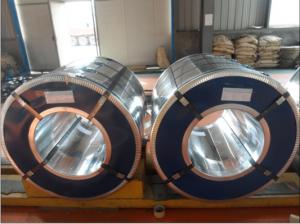China High Quality Galvanized Steel
OKorder Service Pledge
Quality Product, Order Online Tracking, Timely Delivery
OKorder Financial Service
Credit Rating, Credit Services, Credit Purchasing
You Might Also Like
HUIFU Galvanized steel coil
Specification:
Thickness:0.18-1.2mm
Width:762-1250mm
Zinc:40-130g
Spangle:zero spangle
Surface:chromate,oiled/unoiled,skin pass
Coil weight:3-20Mt
Inner diameter:508 or 610mm
Packing: standard dampproof, seaworthy export packing
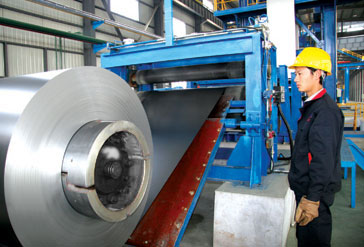
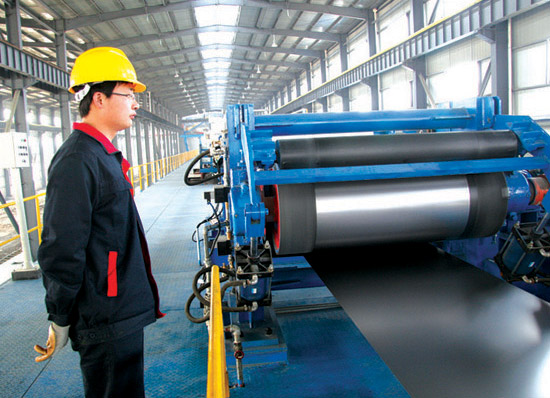
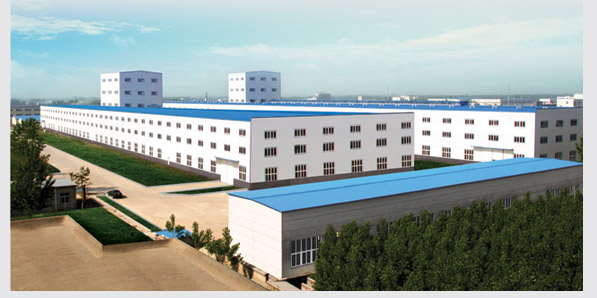
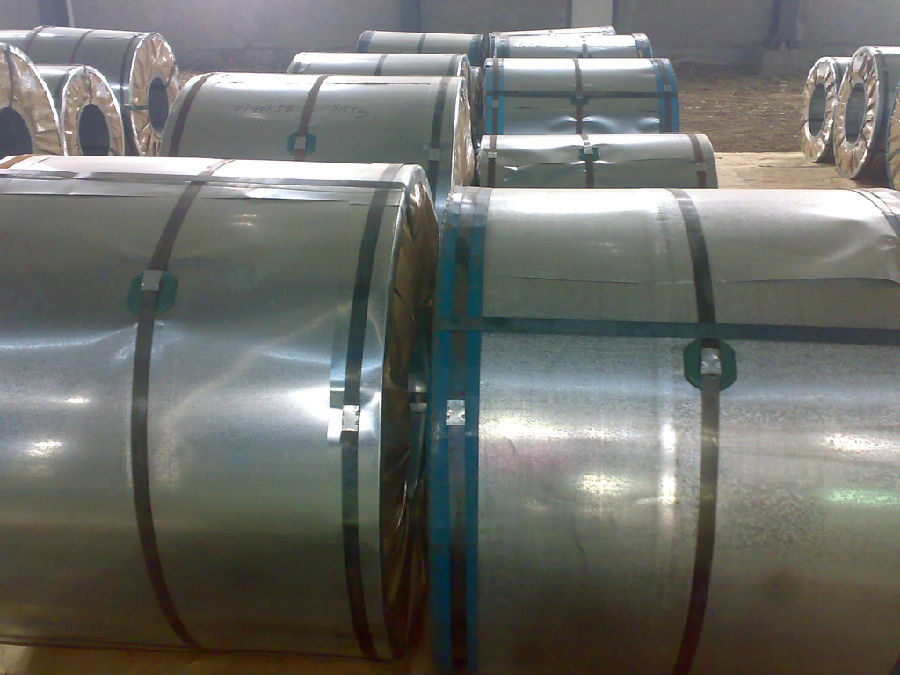
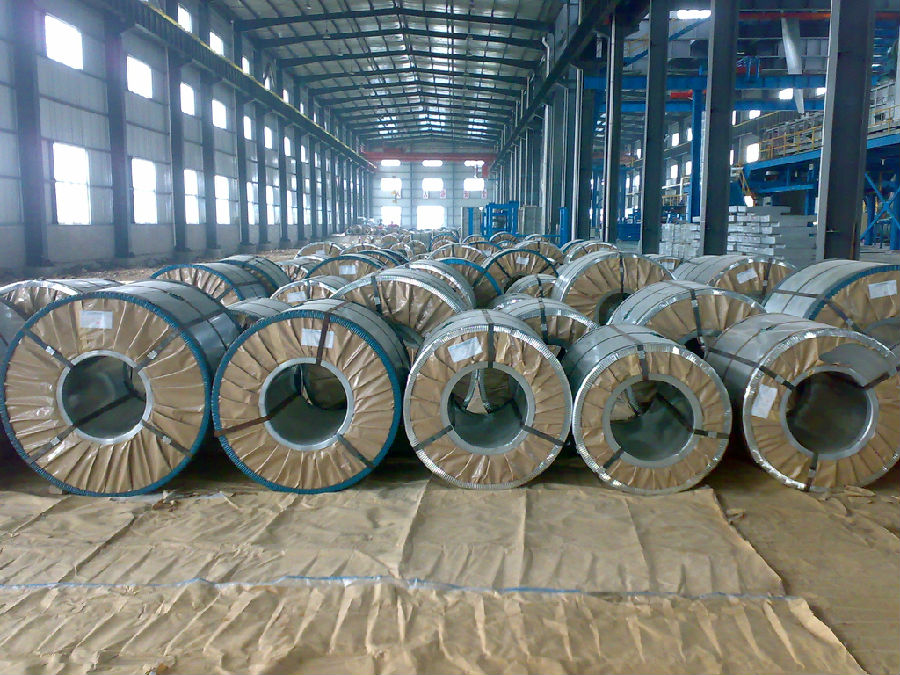
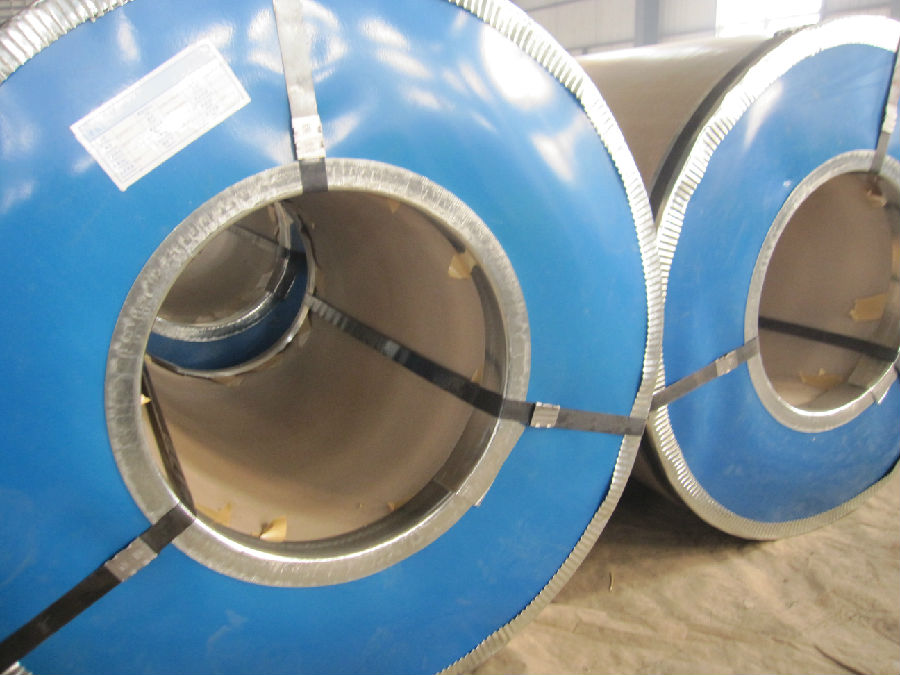
If you have any need of GI coil, please tell me the specification, then the best price will be sent to you immediately!
Alena
- Q:My string on my acoustic guitar broke. Can I replace all of my strings with phosphor bronze guitar strings if my guitar has steel strings on them?
- Yes you can. In fact, I prefer phosphor bronze strings to standard steel on my acoustic guitar. I think they play better, feel better, and sound better. My favorites are the D'Addario phosphor-bronze medium gauge.
- Q:Do any tour players use steel shafted woods? And are there any real advantages to having steel shafted woods? I have only played with one person to use steel shafted woods, he tells me thats because he cant hit it straight with graphite, however he is a very short hitter.
- Steel shafts will provide more accuracy, but they are much heavier than graphite (obviously). They have extremely low torque ratios which allows them to be more accurate. However, you need to have a very fast, controlled swing to be successful with steel shafted woods. Notice that only a few PGA Tour pros have them.
- Q:i got a strip of steel from lowes how to sharpen it its not that thick its kinda slim but its heavyish its around 4'2 feet tall i cant get a whetstone or anything elsei have a brick , sand paper , and a hammer and some charcoal i was heating it up and trying to pound a edge into italso how to cut the steel to make a pointy curved tip any help appreciated and please tell me easy methodsplus its not sharp at all
- Bench grinder, Dremel Hand Grinder
- Q:How are steel coils used in the production of construction components?
- Steel coils serve various purposes in the production of construction components. One way they are commonly used is in the manufacturing of steel beams and columns, which are integral to the structure of buildings and other large constructions. The steel coils are processed and molded into the desired dimensions, then cut and welded to create the beams and columns. In addition, steel coils are employed in the production of roofing and wall cladding materials for construction purposes. These coils are often coated with protective layers to enhance their durability and resistance to corrosion. Subsequently, the coils are shaped and formed into roofing sheets, wall panels, or siding materials that not only add aesthetic appeal, but also provide functional protection for the building. Another significant application of steel coils in construction is for the production of reinforcing bars, commonly referred to as rebar. Rebar is used to reinforce and stabilize concrete structures, such as foundations, slabs, and walls. The steel coils are processed and cut into specific lengths, then shaped and twisted to form the required reinforcement bars, which are subsequently embedded within the concrete during construction. Moreover, steel coils can be utilized in the production of various other construction components, including pipes, tubes, and profiles. These components serve purposes such as plumbing, heating, ventilation, and other structural applications. The steel coils undergo different manufacturing processes, such as rolling, welding, and shaping, to achieve the desired dimensions and properties of these components. In conclusion, the significance of steel coils in the production of construction components cannot be overstated. They are crucial in the manufacture of steel beams, columns, roofing and wall cladding materials, reinforcing bars, pipes, tubes, and profiles. These components are indispensable to the construction industry, as they provide strength, durability, and functionality to buildings and other structures.
- Q:Can steel coils be used in the food processing industry?
- Yes, steel coils can be used in the food processing industry. Steel coils are often used to manufacture a wide range of food processing equipment such as conveyor belts, food storage tanks, mixing tanks, and processing machinery. Steel is a durable and hygienic material that is resistant to corrosion, making it suitable for use in food processing environments. Additionally, steel coils can be easily cleaned and sanitized, ensuring the safety and cleanliness of the food processing equipment. Overall, steel coils are a commonly used material in the food processing industry due to their strength, durability, and compatibility with food safety standards.
- Q:What are the common applications of steel coils in construction?
- Steel coils are commonly used in construction for a variety of applications such as roofing, wall cladding, structural beams, and framing components. They provide strength, durability, and versatility, making them ideal for supporting and reinforcing various structures and ensuring their stability and longevity.
- Q:How is the thickness of a steel coil measured?
- The thickness of a steel coil is typically measured using a tool called a thickness gauge, which is capable of accurately determining the thickness of the steel through direct contact.
- Q:Can steel coils be cut to length?
- Yes, steel coils can be cut to length.
- Q:What are the main characteristics of steel coils?
- The main characteristics of steel coils include their high strength and durability, ability to withstand extreme temperatures, excellent corrosion resistance, and superior formability. Steel coils are also known for their consistent and uniform thickness, smooth surface finish, and wide range of available sizes and grades. Additionally, they are easy to transport and process, making them highly versatile for various industrial applications.
- Q:How are steel coils used in the production of structural components?
- Steel coils are an integral part of the production process for structural components. These coils, which are made of steel that has been rolled into a continuous strip, provide the raw material necessary for manufacturing a variety of structural components, such as beams, columns, and trusses. The first step in using steel coils for structural components involves uncoiling the strip and cutting it into the desired lengths. This can be done using a variety of cutting methods, such as shearing or sawing. Once the coils are cut into lengths, they are then processed further to shape them into the specific structural components needed for a particular project. One common method used to shape steel coils into structural components is through the process of bending or forming. This involves using specialized machinery to bend or shape the steel into the desired configuration. For example, a steel coil can be bent into an I-beam shape, which is commonly used as a load-bearing structural component in buildings and bridges. Another method used to shape steel coils into structural components is through the process of welding. This involves joining multiple steel coils together to create a larger component. Welding is often used to fabricate components such as columns or trusses, which require the combination of multiple steel coils to achieve the necessary strength and structural integrity. Once the steel coils have been shaped and formed into the desired structural components, they may undergo additional processes, such as surface treatment or coating, to enhance their durability and resistance to corrosion. This ensures that the components will have a long lifespan and can withstand the demands of their intended applications. In summary, steel coils are essential in the production of structural components as they provide the raw material necessary for manufacturing. Through processes such as cutting, bending, and welding, steel coils are shaped into the specific components needed for various construction projects. These components play a crucial role in supporting the structural integrity of buildings, bridges, and other structures.
1. Manufacturer Overview |
|
|---|---|
| Location | |
| Year Established | |
| Annual Output Value | |
| Main Markets | |
| Company Certifications | |
2. Manufacturer Certificates |
|
|---|---|
| a) Certification Name | |
| Range | |
| Reference | |
| Validity Period | |
3. Manufacturer Capability |
|
|---|---|
| a)Trade Capacity | |
| Nearest Port | |
| Export Percentage | |
| No.of Employees in Trade Department | |
| Language Spoken: | |
| b)Factory Information | |
| Factory Size: | |
| No. of Production Lines | |
| Contract Manufacturing | |
| Product Price Range | |
Send your message to us
China High Quality Galvanized Steel
OKorder Service Pledge
Quality Product, Order Online Tracking, Timely Delivery
OKorder Financial Service
Credit Rating, Credit Services, Credit Purchasing
Similar products
New products
Hot products
Related keywords
